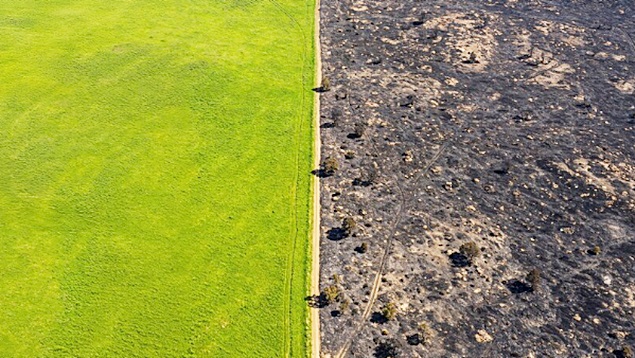1175

Before COP30, Climate Talks in Bonn Turn Spotlight on Food Systems
As global attention turns toward COP30, set to take place in Brazil later this year, climate negotiations were already underway in Bonn, Germany. These annual mid-year talks, though smaller in scale than COP itself, often serve as a critical springboard for the main event, reports FoodNavigator.
Food Remains a Key Issue
Regardless of the size or prominence of a climate meeting, food remains a crucial topic. Food production accounts for approximately 26% of global greenhouse gas emissions, according to Our World in Data.
Yet food systems don’t always receive the attention this statistic warrants. So, did food get the focus it deserved in Bonn this year? More importantly, did the talks deliver meaningful progress on making food systems more sustainable?
Was Food on the Agenda in Bonn?
This year’s Bonn Climate Talks were held from 16 to 26 June. The early-stage discussions offered Brazil, the COP30 host country, a platform to begin shaping its vision for the November summit in Belém.
Food-related issues were indeed addressed. The conference maintained its previous commitment to agriculture, dedicating a full day—17 June—to this topic.
“Experts and Parties (member states) explored holistic, systems-based approaches to align food systems and agriculture with climate goals,” explained Juliette Tronchon, Head of UN Affairs at ProVeg International.
Spotlight on Regenerative Agriculture
“Regenerative agriculture was featured in several sessions, though it’s still far from being considered central to climate solutions,” said Harko Koster, Global Lead for Climate and Food Systems at SNV, a nonprofit development organization focused on agri-food systems.
SNV is a partner of the Action on Food Hub, which also includes EIT Food and ProVeg International. “In many of the regions where SNV operates—including East Africa, the Sahel, and Southeast Asia—smallholder farmers are already applying agroecological and low-emission practices to sustain their livelihoods and ecosystems under pressure. These approaches are effective but remain underrecognized in global finance and policy frameworks.”
Although no concrete decisions were made, Koster noted a “growing momentum” to integrate regenerative agriculture models into both national action plans and investment priorities.
However, he also criticized the “ongoing fragmentation in how food, water, and energy systems are approached—despite their deep interdependence,” which limits the potential for long-term structural change.
Food Systems on the Agenda in Bonn—What About COP30?
Looking ahead to COP30, Brazil’s presidency has released its preliminary agenda for Mutirão, the main platform for the summit. The plan outlines five key action areas, including “Food Systems” and “Forests, Oceans, and Biodiversity.” It has also been confirmed that the Action on Food Hub will be present at COP30, as it was at COP29.
At Bonn, the “Plant-Based Diets Declaration” was launched, urging national governments to promote “healthy and sustainable” diets.
Proposed by ProVeg, the declaration calls on governments to develop national action plans to boost the consumption of plant-based foods.
The declaration highlights that most countries already view agri-food systems as key to both climate mitigation (91%) and adaptation (94%) in their Nationally Determined Contributions (NDCs) under the Paris Agreement.
According to Tronchon, the declaration has three goals: to encourage governments to include plant-based diet commitments in policy frameworks; to raise awareness and inspire action among national authorities; and to secure at least 100 signatories—including governments, city councils, or civil society organizations—particularly in strategic regions such as China, Nigeria, and Brazil.





